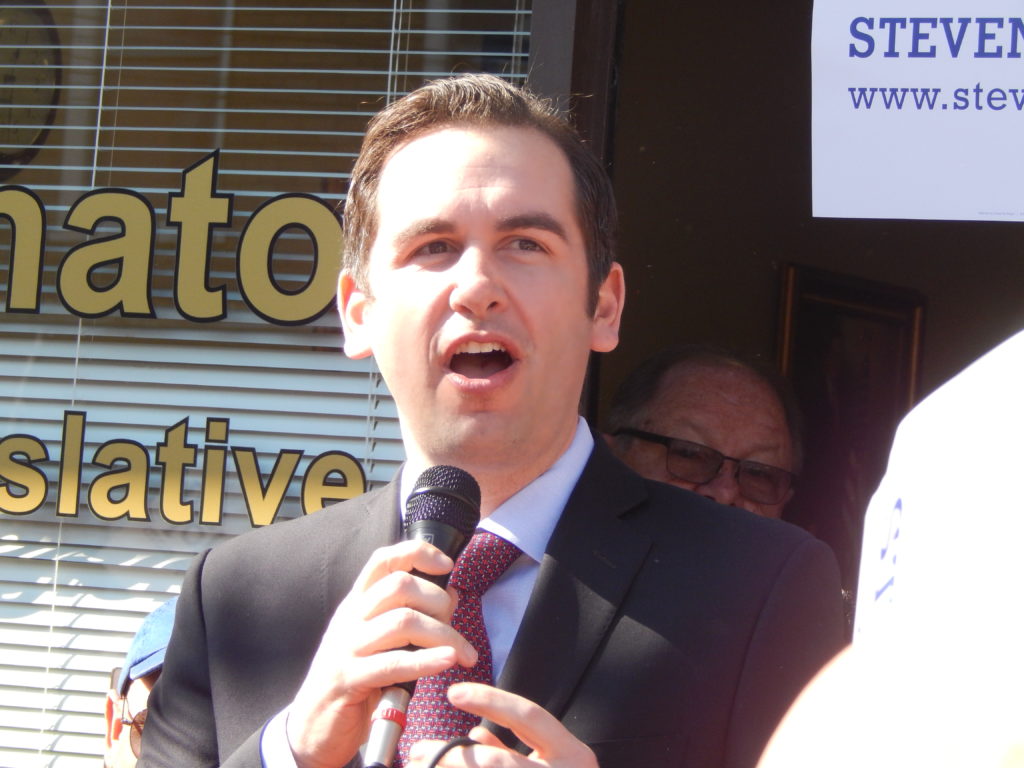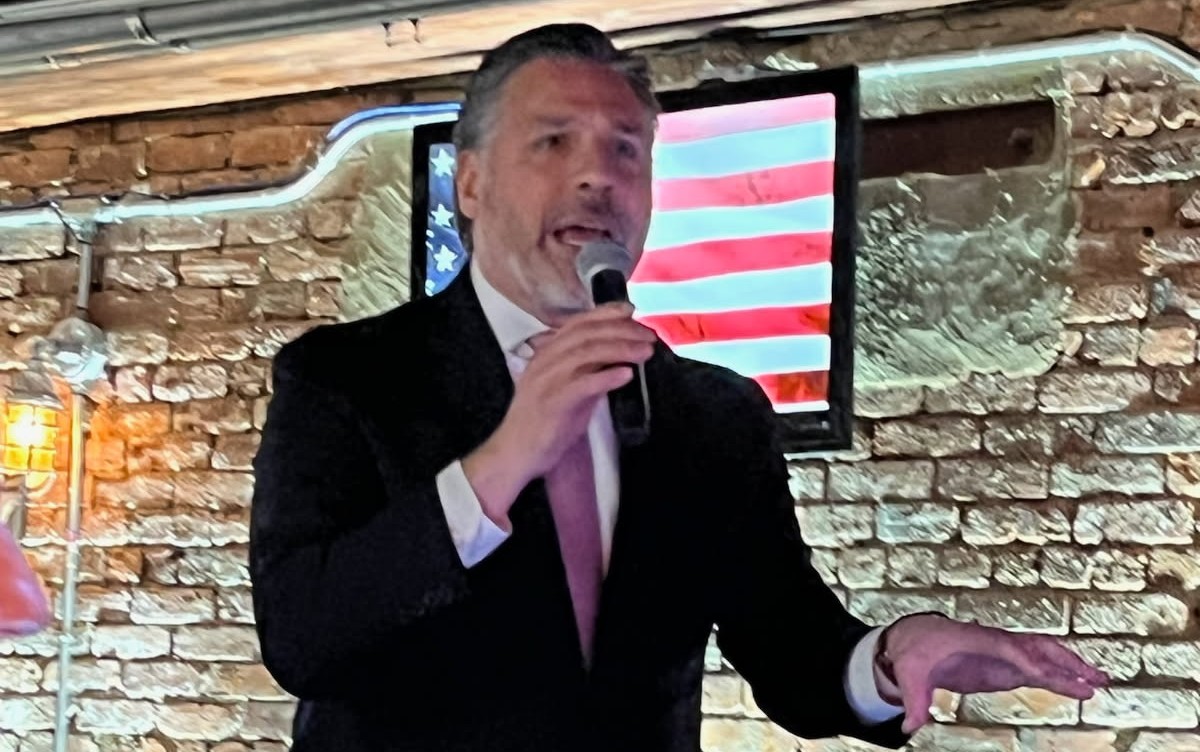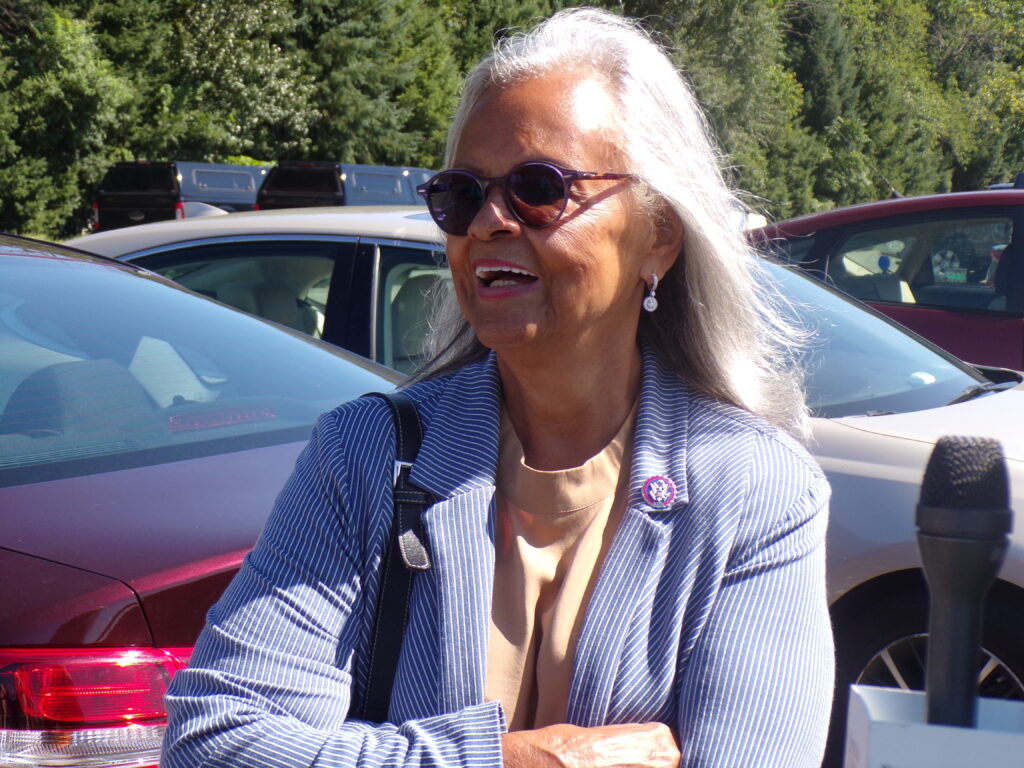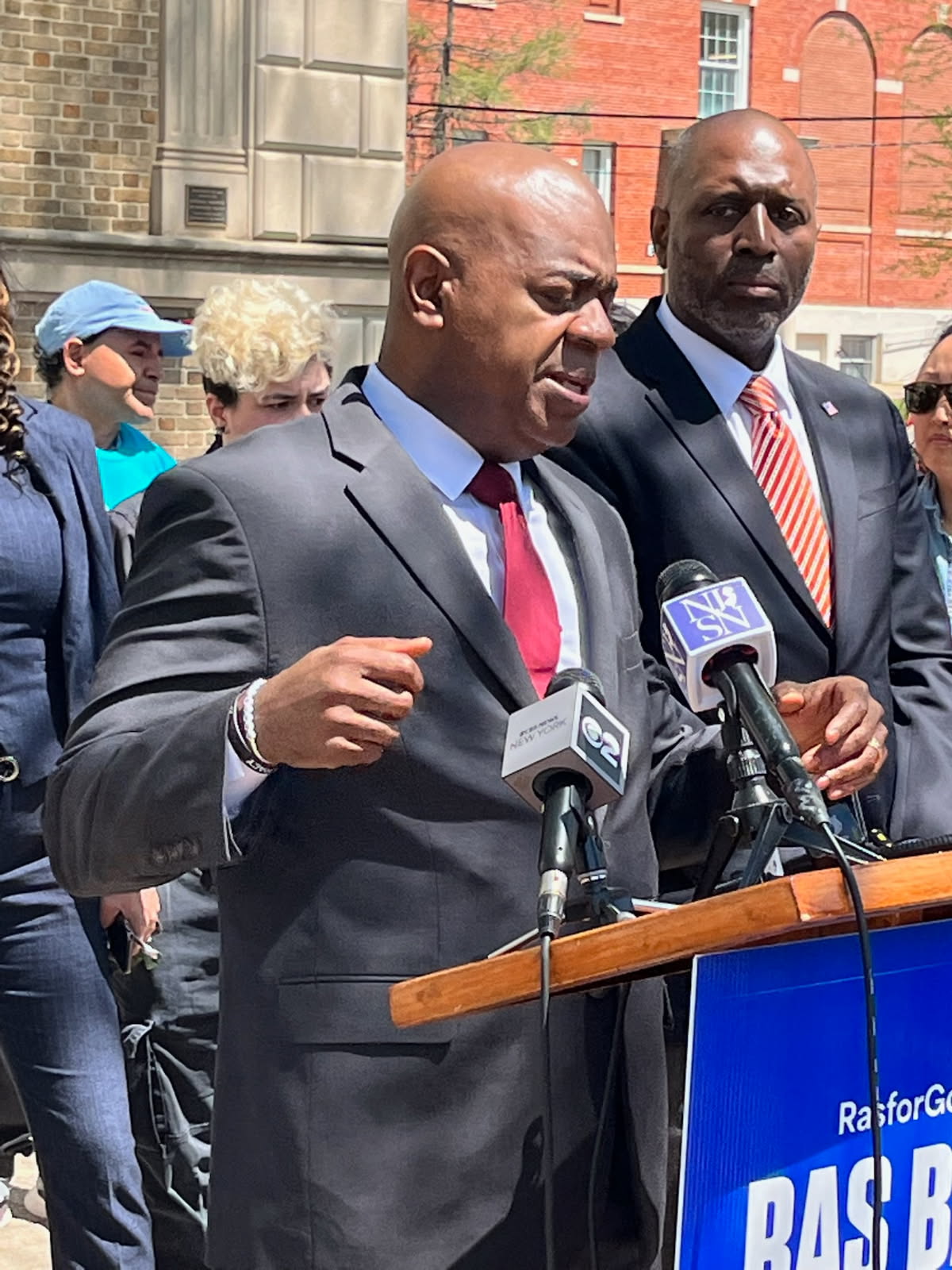
“Concern.”
That was the word multiple North Jersey insiders this week used to describe the campaign of U.S. Rep. Mikie Sherrill (D-11).
Great candidate. Terrific resume. Laudable record of public service.
But…
“Concern.”
It went beyond the usual rant born of rathole misogyny and political insider pathology.
Those entities aligned with Sherrill faced the changed dynamics of Democratic Primary politics (Trump overlordship of the country awakening unprecedented fear and alarm, Andy Kim scrapping the party line, and economic insecurity and in-affordability in a state helmed by establishment Democratic Party complacency) and concluded that the candidate appears too heavily reliant on party organizations operating at less than full strength.
In urgent backchannel conversations all week, they also cited the clicking candidacy of Jersey City Mayor Steve Fulop, whose preparation as the leader of one of New Jersey’s most complex cities, seems to uniquely complement his Jersey roots, progressive politics, campaign organization, and willingness to go in-depth on state issues.
Fulop, all parties said, looks to have established some primary season legitimacy in a complicated field of six candidates contending for the Democratic nomination.
A Republican on a bar stool earlier this week clinked a glass in the direction of any rival party nominee not named Sherrill, convinced that GOP worker bee Jack Ciattarelli (far ahead in today’s Rutgers-Eagleton Poll) could peel significant segments of the Democratic Party establishment away in a general if Democrats furnish simply a progressive, Andy Kim-wing party nominee, like Fulop, or Newark Mayor Ras Baraka.
InsiderNJ spoke to four progressive leaders this week, who, speaking on condition of anonymity, expressed their preference for Fulop or Baraka as better spokespeople for their issues and acknowledged Sherrill only as a moribund option.
The congresswoman’s allies this week expressed concern that her campaign appears too willing to accept the probability of these two liberal mayors canceling each other out, enabling her to run up the middle of the June 10th Primary. They also worry that the party organizations – fat, out-of-shape, and unaware of concepts like “public service,” as packaged by Sherrill – lack steam in the post-Kim challenge era. They said they believe the congresswoman would make a grave mistake to let county operators bear the burden of campaign mechanics and messaging.
“She needs to want it,” a source told IniderNJ. “She needs to go after it more.”
Observing a D.C.-heavy inner sanctum around the candidate, party insiders this week reluctantly noted that Sherrill, like Jon Corzine and Phil Murphy before her, does not demonstrate sufficient connectivity with Jersey voters. Corzine and Murphy could get away with it when the party line still commanded considerable strength. But supposed frontrunner Sherrill will have to work harder than those Goldman Sachs brands, which enjoyed the unified backing of party organizations safeguarded by ballot bracketing at that time still sanctioned by the law.
Are present political circumstances fatal for Sherrill?
No, not at all.
She remains the favorite, in part the result of her status as the contest’s sole woman candidate, good favorability numbers based on part on early campaign messaging, and the animated active participation in her candidacy of the powerful Middlesex Democratic Committee, a difference-maker in divided times.
But does her campaign need to work smarter and harder to hold off a surging Fulop, a master of organizing targets of opportunity, bringing aboard and managing voter angst and anger and pointing it at power, tested in elections going back his downtown city council election and the championing of School Board candidates?
Yes, the insiders said, by acclimation.
To the POV of the Ciattarelli ally in the GOP reveling in a divided Democratic Party field, the negative onslaught this month by Steve Sweeney in particular against Sherrill – and only Sherrill in the six-person contest – perhaps signals a willingness by the South Jersey wing of the party to go in another direction if Sherrill prevails in the primary. Bounced out of office in 2021, Sweeney endured the additional humiliation of receiving the heave-ho off the legislative redistricting commission by Essex County Democratic Committee (and Democratic State Party Chair) LeRoy Jones. Now, it’s payback time for Sweeney and South Jersey, at the very least, as the former senate president’s poll numbers sag.
Sources pointed to another flashpoint in Hudson County, where fierce foes Fulop and Union City Mayor Brian P. Stack could open another substantial general election breach for Democrats if Fulop becomes the nominee. Sherril backer Stack, it is said right now, is bothered by the lack of urgency and productive political thinking in her campaign.
Earlier this week, StimSight Founding Director Patrick Murray called the Democratic Primary a toss-up with Sherrill perhaps slightly ahead, while voters watched for a single candidate among the options “to catch fire.” As the week wrapped up, based on his social media presence, galvanizing and aggressive campaigning and self-promotion, accessibility, and level of policy detail in answers, Fulop threatened to occupy that role as a human pillar of fire, leaving segments of the North Jersey establishment scrambling and eager to impress upon the Sherrill Campaign the need to go on offense.
In a surprising turn of events, Jersey City Mayor Steven Fulop has launched an active campaign in support of his preferred candidate in the competitive Democratic primary for New Jersey’s 11th Congressional District. This move has caught many off guard, particularly allies of incumbent Rep. Mikie Sherrill, who had been expecting a more low-key approach from Fulop.
Fulop’s endorsement of Sherrill’s primary challenger, Mark Washburne, has raised eyebrows among political observers, as Sherrill is widely seen as a rising star in the Democratic Party and has garnered significant support from national Democrats. However, Fulop’s decision to back Washburne may be driven by his desire to have a more progressive voice representing the district.
The 11th Congressional District is considered a swing district, and Sherrill’s victory in 2018 was seen as a major upset. She has since become a prominent figure in the party, particularly on issues such as national security and veterans’ affairs. However, Washburne has positioned himself as a more progressive alternative, advocating for policies such as Medicare for All and the Green New Deal.
Fulop’s endorsement of Washburne could potentially shift the dynamics of the primary race, as he is a well-known figure in New Jersey politics and could help mobilize support for Washburne among progressive voters. This development has caught many of Sherrill’s allies off guard, as they had been expecting a more traditional campaign from Fulop.
It remains to be seen how this endorsement will impact the primary race, but it is clear that Fulop’s active involvement has injected a new level of excitement and uncertainty into the contest. With the primary just around the corner, all eyes will be on the 11th Congressional District to see how this unexpected twist plays out.



